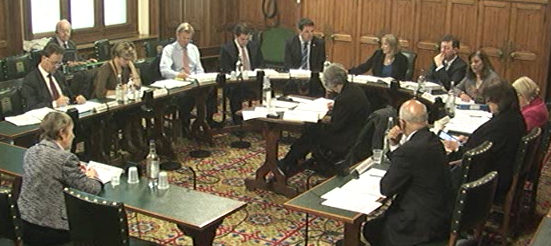- 18/11/2014
- Posted by: Valerie Vaz MP
- Category: News

On Tuesday 18 November 2014, the Health Select Committee, of which Valerie is a member, heard evidence from Dame Kate Barker, Chair of the Commission on the Future of Health and Social Care as part of the Committee’s inquiry into public expenditure on health and social care. The exchange between Valerie and Dame Kate is below.
Valerie Vaz: Dame Kate, my questions are about clarification on the report and some background information. First, are you aware that the NHS Confederation has said that health and social care commissioners already have the ability to pool their budgets? Did you look at that when you drew up your report?
Dame Kate Barker: Yes, we did look at it. As I have said, there are examples of cases where people have pooled their budgets. That is very helpful, but it does not completely solve the problem because the entitlements of individuals to one type of care or another still will run across means testing. One of the reasons for wanting to take more people out of means testing was that it will make single commissioning and pooling of budgets a much easier and better process. I am certainly aware that people have been pooling budgets, and I have to say that is great, but something you are always very concerned about when you write a report is that you do not stop good practice. I hope that, as they think about how we move towards the kind of system that we recommend, people will build on a lot of the good practice that is already occurring today. Absolutely I agree you can pool budgets but, if entitlement and means testing are still different, it is hard to make that work as smoothly as perhaps one would like. I have to say that, even under our system, it would not work perfectly unless you made everything free. Indeed, even with the NHS, where we think of everything as being free, of course being ill often costs you money.
Valerie Vaz: That is partly what I was going to pick up. An idea that occurred to me was rather than pool the health budget—and I will come on to why I ask that question—was maybe to give local authorities the money directly so that everyone is not means tested; everyone can have the ability to have their critical needs assessed free. Maybe it is better to give them money rather than have another structural position that you are advocating with the single commissioner.
Dame Kate Barker: I can see the case for that and that would be one way of doing it, although you would still want it to be ring-fenced. The question then is whether you would get over the business of people squabbling about who pays for what, which—or so it seems to me—is always very unhelpful. I have been struck—I articulated this a little bit in answer to an earlier question—by the institutional resistance to some of these proposals. It is not just about institutional resistance to another reorganisation—which nobody wants and is one of the reasons why we do not think this would happen very quickly—but that the local authorities do not want this money ring-fenced because they would like to be able to pluck it away a little bit, and the health service do not want it ring-fenced in case they also lose a little bit of influence over some of their budget. That is why I come back to saying we tried to think about how it works from the patient’s point of view and not how it works from the interests of these organisations.
Valerie Vaz: That leads me on to the other aspect—the provider aspect. Did you look at the effect this kind of proposal would have on the hospitals, bearing in mind that social services is about a particular group of people but yet the hospitals have to provide for a wide range of people that do not come under adult social care? We are talking about pooling budgets when they have a much wider remit. For example, there would be implications on training the next doctors, and so on, in different specialties. Did you look at what this would do to hospitals?
Dame Kate Barker: We did think about that. The proposal is not that the acute hospitals would necessarily come under this banner. I do not think you would want to have acute care in hospitals sitting in this pooled budget. This is much more about community hospitals and the work on health prevention—the kind of work that is done closer to the patients. I would not see the people who are involved in deciding on resources for, say, health surgery going into that. But the point you raise about training is a good one, not necessarily so much about medical staff but about the training of the kind of work force, if you had a pooled budget, that you would want to go out and deliver services because they would be delivering a much more integrated package and might need to be rather different from some of the people who deliver the care today.
Valerie Vaz: But do you accept that it could have an impact on acute hospitals? Not every area has community hospitals, does it?
Dame Kate Barker: It could have an impact on part of the acute hospitals, yes.
Valerie Vaz: What was your conclusion?
Dame Kate Barker: You would hope that the conclusion would be that you would not have so many beds in acute hospitals taken up by people who have not yet been moved out into the community. That would be my expectation.
Valerie Vaz: Thank you very much.
More information of the Health Select Committee’s inquiry into public expenditure on health and social care can be found here: http://www.parliament.uk/business/committees/committees-a-z/commons-select/health-committee/inquiries/parliament-2010/public-expenditure2/

